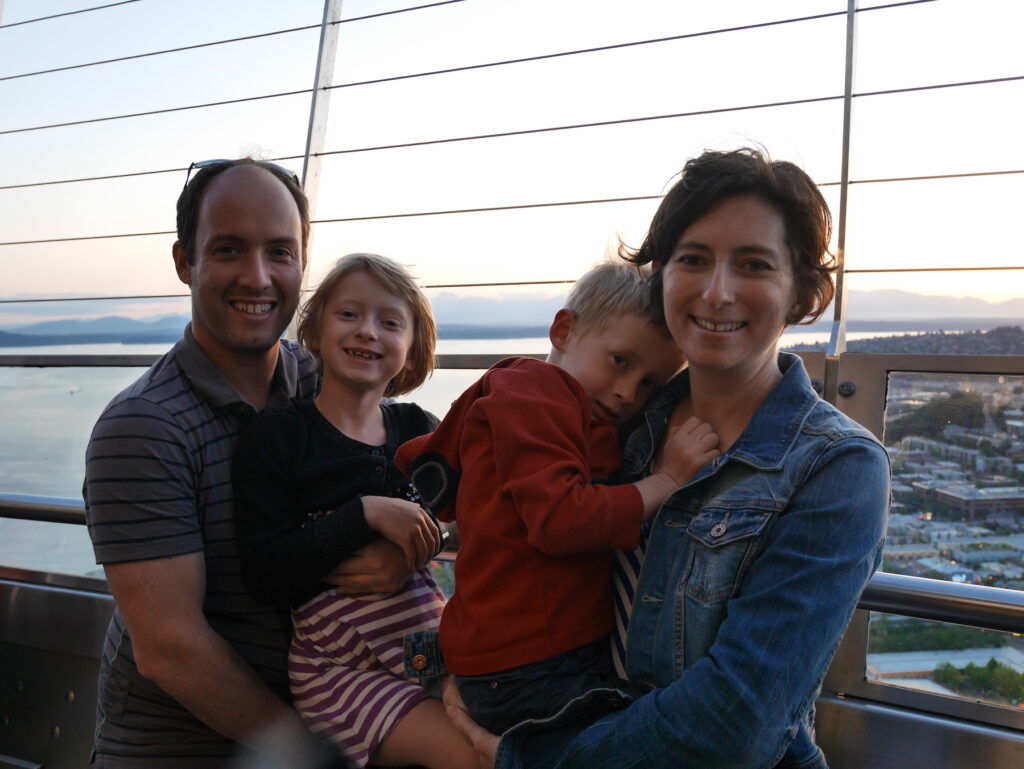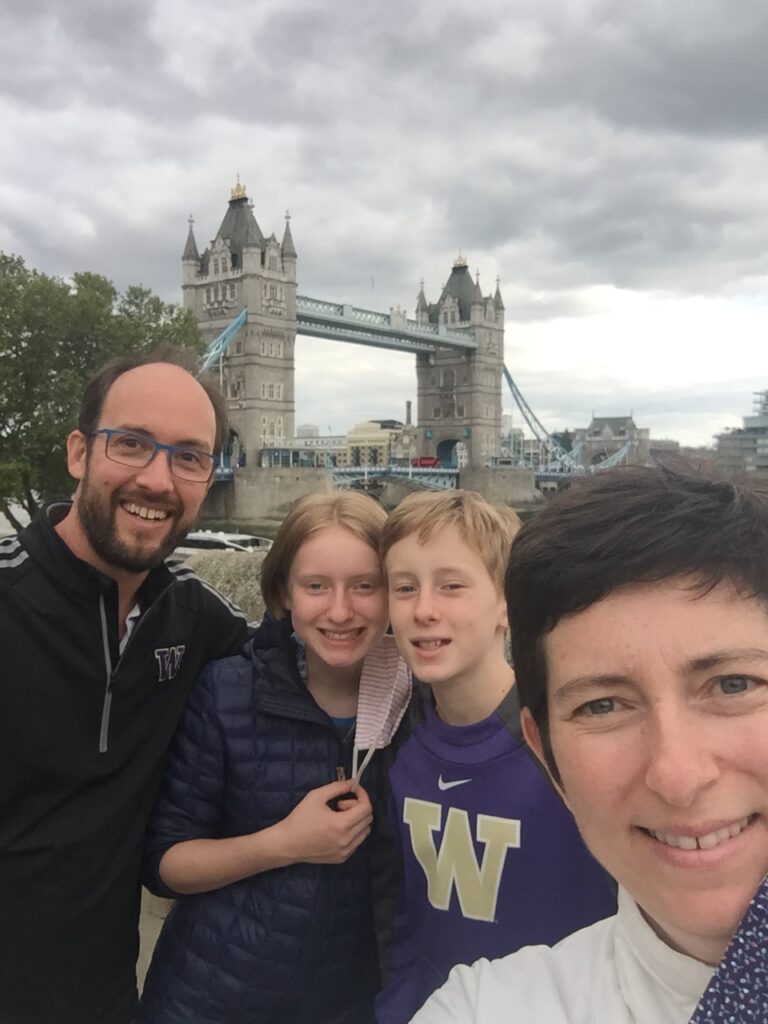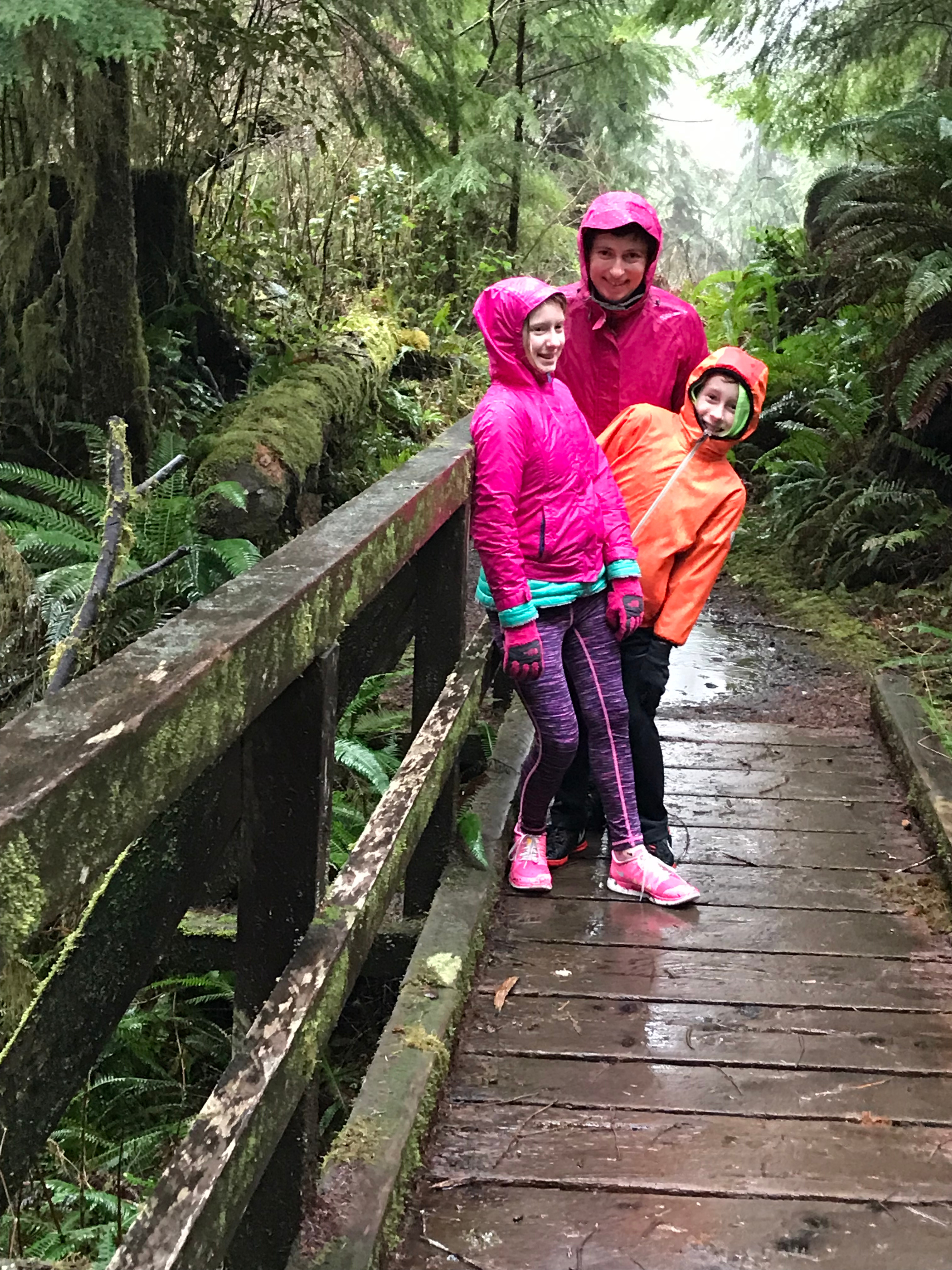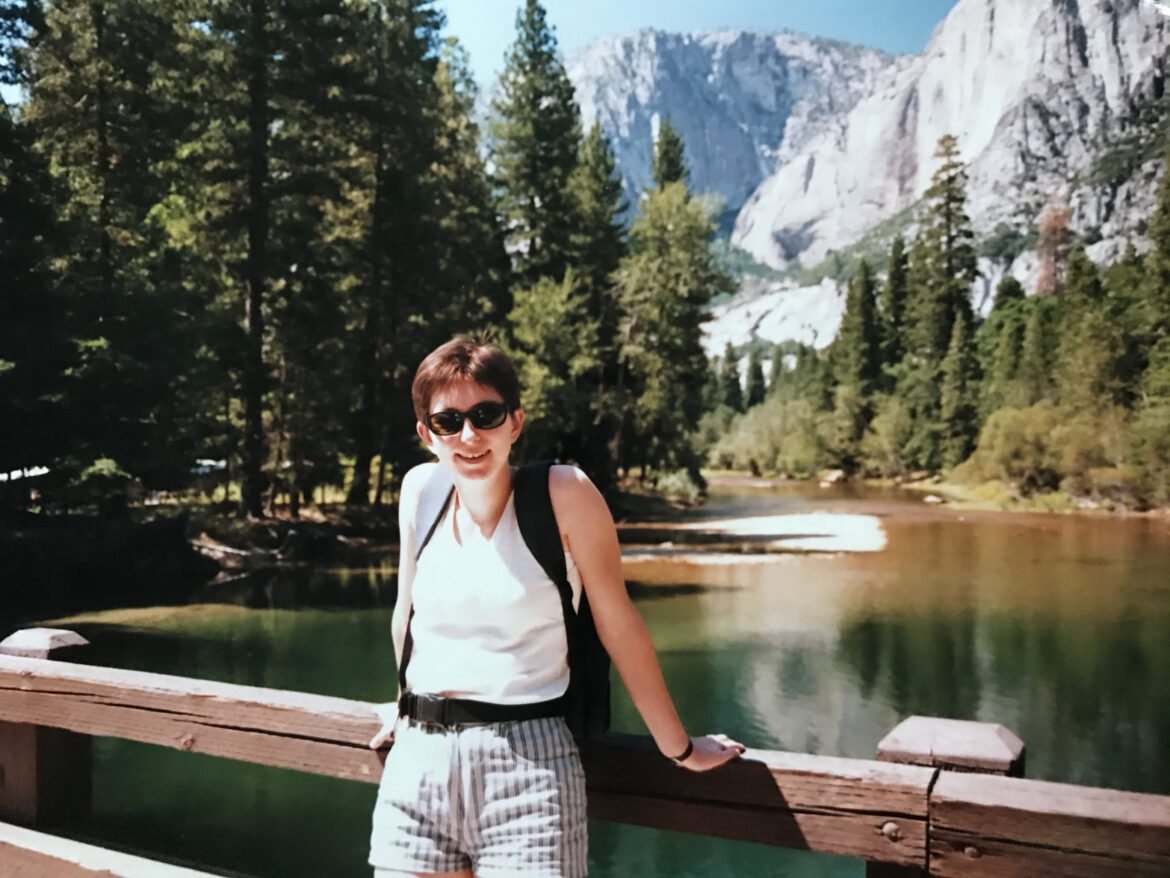Throughout my life, I’ve often thought about my favorite childhood book, Mister Dog by Margaret Wise Brown. Mister Dog’s mantra was: “Just walk and sooner or later you’ll get somewhere.” (Or, as I learned it as a little girl growing up in Lyon, France, “Marche au hasard, tu arriveras bien quelque part.”)
It’s a silly phrase, but I’ve always loved Monsieur Chien’s way of thinking. There is so much to learn from a place — and from the journey that takes us there — when we are open to discovery. I’ve tried my best to embrace every opportunity for personal growth, in good times and in challenging ones, and go with the flow even when moving thousands of miles away with only short-term plans in place.

Yet I must admit that I wince at the term “trailing spouse.” I prefer to see my partner and I as a twin-engine couple, rather than a trailing-towing pair. We’ve decided on each move as a team, thinking carefully about the opportunities for both of us and sharing the efforts of starting a new life in each location. Still, he has usually been the one securing the jobs that took us someplace new, while I seized these life changes as chances to reinvent myself — in the true trailing-spouse spirit demonstrated by so many other contributors here.
First move: Lyon, France to Sunnyvale, California
Our first long-term, long-distance move, from Lyon, France to Sunnyvale, California, was prompted by our shared desire to discover a new country and culture — and to start our engineering careers in one of the world’s most famous tech centers.
Pierre and I had met while studying microelectronics in Lyon. With our master’s degrees and job offers in hand in 2001, at the peak of the dot-com craze, we packed our bags and headed west. I remember our families’ reactions as a mix of angst (at seeing us move so far away) and pride (for giving us the education and the freedom to do so).
We felt empowered to live our lives the way we wanted. Although we’ve never quite shaken the guilt of moving so far away from our families, this move scored a perfect 15/15 on the Gupte Scale at the time.
First as “dinkies” (double-income, no kids yet), then as a young family, we jumped on every chance to learn about our new country — hopping on a plane to big cities, taking road trips along the Pacific coast, exploring the Southwest’s national parks. We also went back to France for a couple of weeks each year, and our parents visited us, too. Weekly emails and video calls helped fill any gaps and bridge the 6,000-mile distance.
Second move: Silicon Valley to Seattle
A dozen years later, we unexpectedly made our second big move. Pierre had been looking around Silicon Valley for a job that would be more fulfilling and less stressful, and ended up being offered a great position in Seattle.
We agreed that we needed a change of pace and scenery, and we couldn’t wait to discover a new region. Leaving our friends was very hard, but I had decided to keep my California-based job, which ensured that I could still make trips back often to visit. We fell in love with Seattle immediately, which made the transition easier. This move scored a very good 13/15 on the Gupte Scale, since the only challenges were my transition from working in my company’s office to becoming a remote employee.
As many of us have learned the hard way this past year, working from home was far less lovable than I had expected. Even though I was working for a tech company fully equipped with instant chat and video communications tools, it took a lot of effort to stay in the loop; I was the only one away from the office and felt like I was constantly missing important impromptu hallway conversations.
Meanwhile, moving away from the Bay Area made me realize that I had been living in a bubble. Seattle has a dynamic social impact sector (including the headquarters of the Bill and Melinda Gates Foundation), and Seattleites seem to constantly ask big social questions about power struggles, racism, implicit bias, diversity, equity, and inclusion. I found myself becoming more conscious of disparities, inequalities and privilege, and convinced that I needed to learn more to better understand the world around me.
I decided to go back to school part-time, earning a bachelor’s degree in social sciences from the University of Washington. A few years later, I resigned from my job to pursue a master’s degree full-time in human geography — launching myself on a whole new career path.
Where the ‘where’ fits in
What is human geography, you may ask? It’s not to be confused with physical geography (a natural science) or geology. I like describing it as a mix of sociology, political science, economics, history, and anthropology, paying particular attention to the “where” of the issues. It’s the branch of geography that explores each population’s interactions with each other and their environments. My area of interest within this wide field is the study of how people in their everyday lives contribute to or resist social inequalities in gentrifying urban neighborhoods —which relates to my own experience.
Midway through my exciting new educational journey, my own human geography came to a turning point. Pierre and I began to face the existential dilemma so many expats eventually experience: should we repatriate to care for aging parents or continue living thousands of miles away where our children, careers, and social lives are thriving?

Since Pierre and I are both from Lyon, the question of moving back had always been at the back of our minds; we just never felt 100% ready. After building our careers and raising our children on the West Coast, we felt more like strangers in France than in the U.S.
Still, we had tried to reduce our reverse culture shock by making sure that our children could speak French fluently and were well-versed in French culture, so they would have no issues adapting to life there.
As we had done with our two previous moves, we carefully considered our options and made a decision that worked best for our whole family. After I completed my master’s degree studies last summer, we made our third big shift — to England, however, not France.
Third move: Seattle to London
London brought us much closer to our parents and extended families, while offering more opportunities in both our fields than we could find in Paris at the time. Moving to another English-speaking country also felt like a nice compromise, since we would neither have to adjust to a new language nor abandon our adventurous expat lifestyle.
Little did we know how challenging this relocation would be, however. The timing — in the middle of a pandemic! — really couldn’t have been worse. We felt incredible sadness at leaving a city and a life we loved, and even worse, COVID-19 has intensified our worries about our parents’ declining health while also making the United Kingdom—France border nearly impossible to cross due to the related travel restrictions.
When we arrived in London, the coronavirus lockdowns also ensured our extreme social isolation. It’s hard to make friends — or just meet anyone! — when everything is closed and you’re not allowed to meet in groups. We didn’t even get to mix up with other parents at our kids’ schools, a strategy that had previously fueled our social lives in the Bay Area and Seattle. All of our international move’s administrative and installation tasks also became more delayed and complicated than anticipated.
This said, I was expecting a bigger cultural shock. Our London neighborhood feels similar to our Seattle neighborhood; the weather nearly identical; and Brits could have very well invented the “Seattle Freeze.”
Our kids have stayed in touch with their Seattle friends through online games and video chats; once schools here reopened, they began to make new friends, too.
We are also rediscovering European ways of life and foods that make us feel closer to home. All in all, we think we’ll love London once we can put the COVID trauma behind us.

The move to London has only scored a Gupte Scale 8/15. The city is amazing, and we love not having to deal with a 9-hour time difference when calling our parents and siblings, but crossing the border currently requires multiple COVID tests on both sides, a quarantine period each way, and even paperwork proving that you have one of a very limited number of reasons to travel. The U.K.’s “Brexit” from the European Union has also complicated travel across its national borders.
Thus, although our physical distance to Lyon has gone from 5,235 miles to a mere 458 miles, we don’t necessarily feel significantly “closer” to home than we did when we lived in Seattle! At least our time zone difference is now only one hour behind, which does make it easier for us to keep in touch virtually.
Finding your own way
From my education and experiences, I have come to realize what an enormous privilege it is to travel the world in our circumstances — not fleeing anything, but moving by choice. Again and again, we decided to live someplace new and were able to find jobs there, get the appropriate visas, etc. So many people don’t have these kinds of options or the support to make these kinds of choices.
If I could give one piece of advice to fellow trailing spouses and their families, it would be to volunteer after you’ve landed someplace new. This is a great way to partake in the life of your new community, boost your confidence, and meet people with similar interests.
In Seattle, I helped at my children’s school every week and was active as a club and district officer with Toastmasters International, mentoring people from all backgrounds who aspire to improve their communication and leadership skills. (There are clubs all over the world; you can search the website to find one in your neighborhood and check it out!)
In London, I’ve been volunteering for MerryGoRound, a small charity that collects childrens’ clothes donations and prepares bundles for local families in need. This weekly activity has allowed me to break the isolation I felt when I arrived and feel a sense of belonging to my new neighborhood, all while helping others.

Following in Mister Dog’s paw prints, I’ve allowed chance to guide some of my life’s biggest decisions, trusting that no matter where I would end up, I would be OK — and even happy. As one of my favorite TED Talks explains, some of us are “multipotentialites,” people destined to explore a range of interests and career paths rather than one true calling.
Looking ahead, I hope that my children — Third Culture Kids and world-travelers who have also grown up with this story — find the same comfort in knowing that they can find meaning in every journey and joy in every destination.

